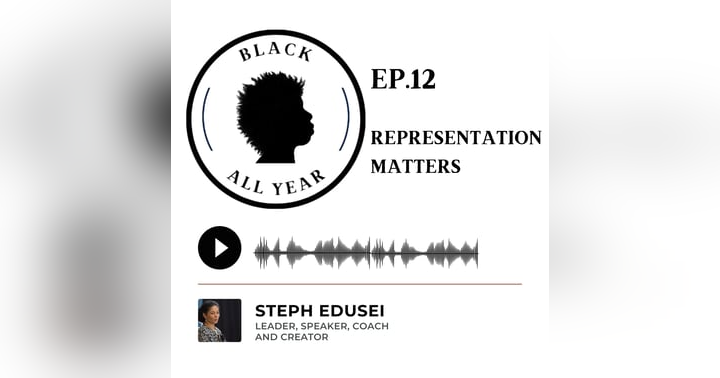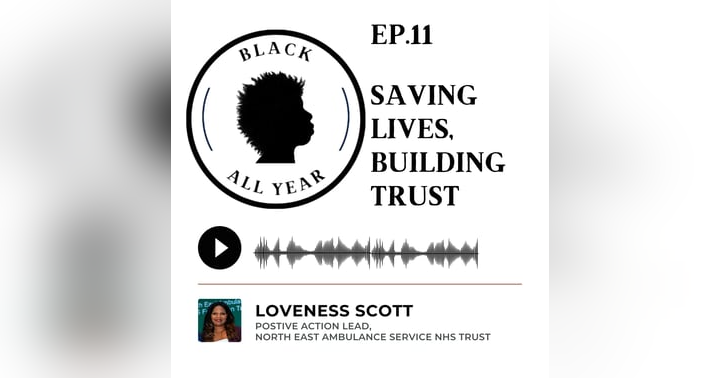The Political Landscape of the UK: Insights from the Recent Election

In this week's podcast Steph Edusei, the host and creator of the Black All Year dives into the recent general election and focuses the performance of the Reform UK Party Limited. She explores what the numbers say about the UK's political landscape and what this means for different communities across the country.
Election Overview
Voter Turnout and Party Performance
Turnout for this election was notably low. The reasons for this could be numerous, and hopefully, we'll see some market research to explain why. Interestingly, the percentage share of the vote was quite evenly split between Labour and Conservative. However, due to the UK's constituency-based voting system, Labour secured a significant number of seats, leading to a Labour majority government. Despite having only about a third of the vote share, Labour emerged dominant.
The Liberal Democrats performed better than they have in a long time, securing around 70 seats. The Green Party also made strides, receiving close to a million votes and gaining four seats—their highest ever in UK Parliament. Then we have the Reform UK Party Limited, which, unlike other political parties, operates as a company, with shareholders making key decisions.
Understanding the Vote Share
Labour and the Conservatives still dominate UK politics, each securing over 10 million votes. The Lib Dems garnered about 12% of the vote, the Greens 2.8%, and Reform UK Party Limited approximately 4%. These numbers suggest a divided electorate, with growing fragmentation as smaller parties gain traction, possibly due to dissatisfaction with traditional parties.
The Rise of Reform UK Party Limited
Economic and Social Factors
Reform UK's rise, capturing 4% of the vote, indicates a significant portion of the electorate is disillusioned with the status quo. Economic hardship, social change, and a sense of disenfranchisement often drive voters towards more radical options. Robert O. Paxton's "The Anatomy of Fascism" explains how economic instability and social upheaval historically pave the way for far-right movements. Similarly, Erich Fromm's "Escape from Freedom" discusses how individuals feeling powerless gravitate towards authoritarian figures.
The Appeal of Radical Narratives
People struggling to achieve a basic standard of living may seek someone to blame, and far-right movements provide a convenient scapegoat. In the UK, the narrative often targets immigrants and welfare recipients. Noam Chomsky's "Manufacturing Consent" highlights how those in power manipulate media to divert attention from systemic issues, placing blame on vulnerable groups.
The Role of Nationalism and Social Media
Nostalgia and Nationalist Sentiments
Reform UK capitalises on nationalist sentiments, promising to "take back control" and protect British values. This nostalgic appeal to a bygone era resonates with those disoriented by rapid social changes.
Social Media and Echo Chambers
Social media plays a significant role in reinforcing extreme views. Online echo chambers feed users content that aligns with their beliefs, amplifying radical ideologies. The Brexit vote highlighted this phenomenon, revealing a stark divide in public opinion facilitated by social media algorithms.
Countering the Far-Right Rise
Education and Media Literacy
To counter the rise of the far-right, we need education and awareness. Critical thinking and media literacy are essential to recognise and resist manipulative narratives. Teaching people to question and verify information can help combat the spread of misinformation.
Building Inclusive Communities
Creating inclusive communities where people from different backgrounds can share their stories and build mutual understanding is crucial. We all share common concerns about shelter, food, safety, and opportunities. Building consensus on these shared values fosters cooperation rather than conflict.
Addressing Economic Inequality
Addressing economic inequality is vital. Economic hardship drives people to seek scapegoats, often targeting the wrong groups. Policies promoting economic equity benefit everyone, lifting all boats with the rising tide.
Encouraging Political Engagement
Encouraging voter participation and supporting parties that represent inclusive policies is essential. Ground-up movements can promote voter engagement, showing people the power of their vote in supporting equitable policies.
Supporting Targeted Communities
The rise of the far-right is particularly concerning for minoritised populations. Black and brown people, women, LGBTQ+ individuals, and others different from the majority face increased discrimination and violence. Providing practical assistance and fostering allyship and solidarity are crucial in supporting these communities.
Conclusion
I'd love to hear your thoughts on today's topic. You can reach out to me on social media, email me at blackallyearuk@outlook.com, or send a message through the website at www.blackallyear.co.uk. Together, we can make a difference.








